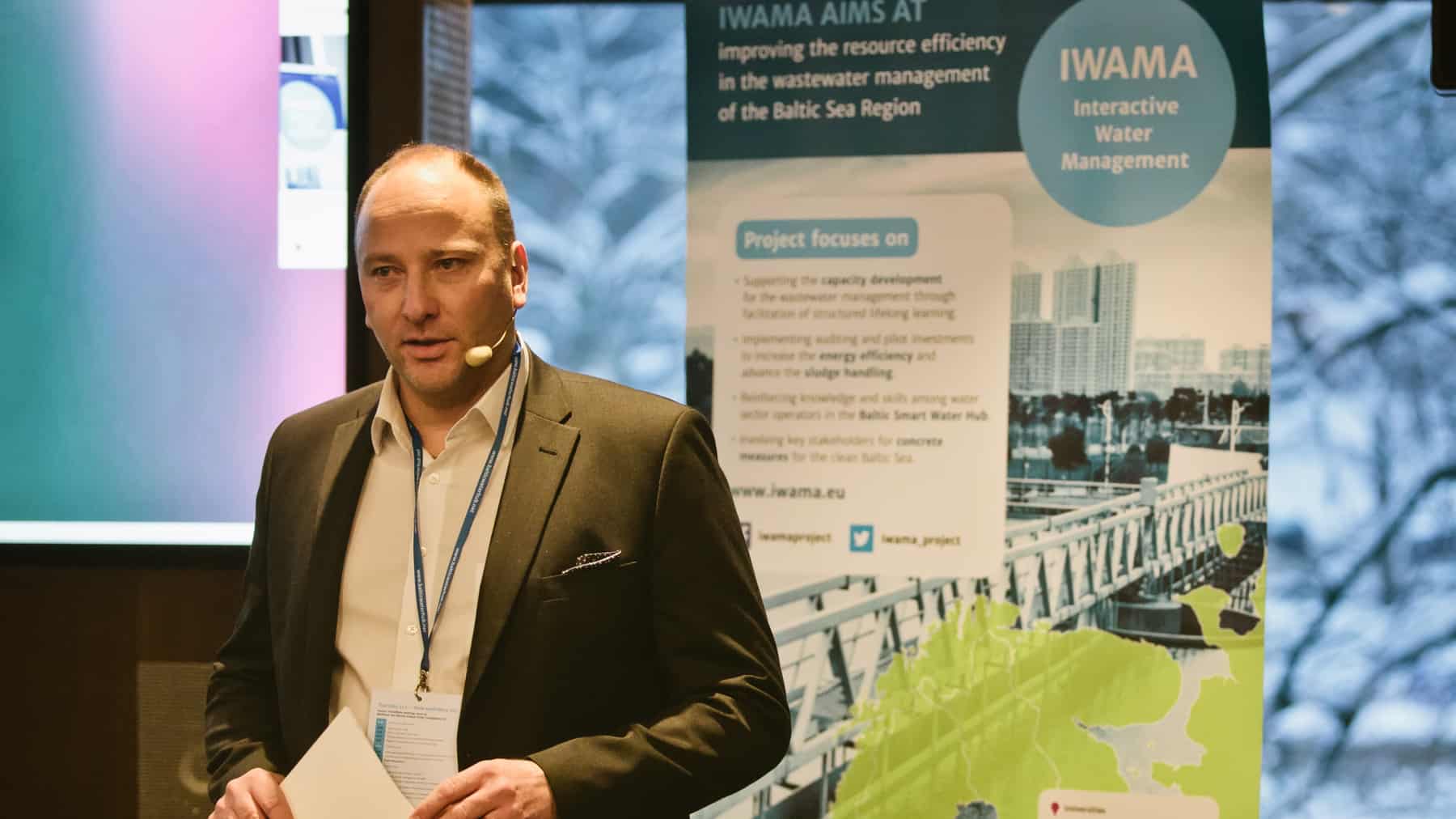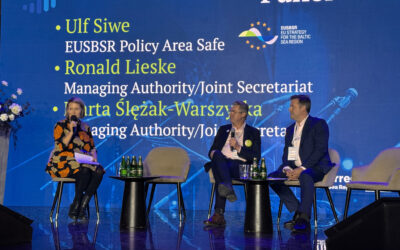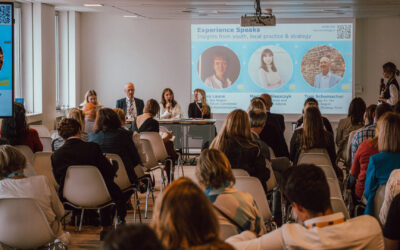Waste water treatment plants are transforming from energy consumers to energy producers thanks to new technologies, privatisation of public services and growing resource awareness. The Interreg project IWAMA enables regions and cities to make better use of their limited resources: its Baltic Smart Water Hub makes knowledge about relevant techniques available to plant operators and owners as well as researchers and university lecturers.
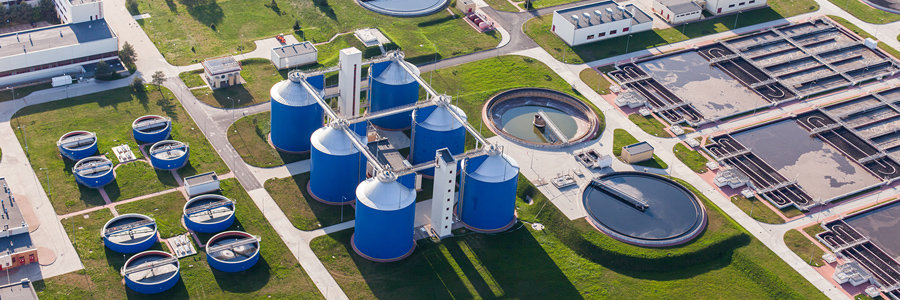
Waste water treatment plant in the Baltic Sea Region. ©panthermedia/yeti88
About 600 operators work up to 2000 municipal waste water treatment plants in the Baltic Sea region. “To date, more than half of the district heating in the Baltic Sea region could be heated by waste water, e.g. in Lübeck, Stockholm and Turku,” explains Björn Grönholm, Head of Secretariat of the Sustainable Cities Commission of the Union of Baltic Cities (UBC) and leader of the project “Interactive Water Management” (IWAMA), which was finalised in spring 2019.
Waste water can be profitable business
Björn sees great potential for many municipalities to get even more out of waste water if they copy what some are already doing in the region: the municipality would sell drinking water through its fresh water company and then collect and treat waste water –services paid for by water tariffs. Then, the municipality would apply heat pumps to take energy out of the 24-25°C waste water and use it in local district heating. For example, Turku’s waste water treatment plant produces ten times more energy from waste water than the energy needed to run the whole plant. Heat can then be sold to markets for district heating and cooling. From the sludge accumulating during the treatment the municipality can produce biogas. “Municipalities have the opportunity to reuse and sell the water and its valuable contents several times – a perfect example of a circular economy,” highlights Björn. In this way, the time needed to pay off the costs of a waste water treatment plant can go down from 25 to about seven years.
Waste water practitioners need to learn and exchange
“There are many waste water treatment plants in which equipment or processes are not managed optimally,” reveals Björn and stresses that “capacity building is always needed when it comes to clean or smart technology – be it in Gdansk, Grodno, Helsinki or any other town in the catchment area of the Baltic Sea.” In addition, the Baltic Sea region is facing a generational shift in many authorities. Young people are coming in who need to be trained and guided. In order to support this training, UBC, together with waste water researchers and practitioners from seven countries, set up an online dialogue tool, the Baltic Smart Water Hub. “With the Hub, we have set up an instrument that shows success stories of water management – big and small”, says Björn, “and with which we discuss real life issues of practitioners – we host discussions, webinars, training videos and presentations.”
Just the right tool for dialogue and learning
More than 60 people representing both academia and practitioners from municipalities and private companies have contributed to developing the Hub, and some 100 users from nine countries are registered by now. For waste water practitioners, the Hub offers almost 50 descriptions of technical solutions and good practices from “Bio-filters for better nutrient removal of nutrients at Rostock WWTP” and “Chemical removal of phosphorous at Brest WWTP, Belarus” to “Wetlands to treat waste water in Soderhamn, Sweden”. Each user gets something out of the Hub:
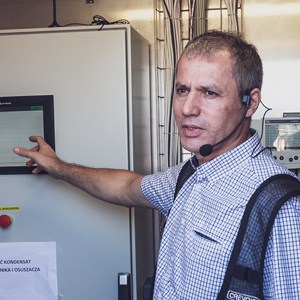 Marek Swinarski,
Marek Swinarski,
practitioner in Poland
“The Hub gives us free access to the most recent technologies – they are already implemented, tested and evaluated, thus they are replicable and cost-efficient which is important for us,“ says Marek Swinarski of Gdansk Water Utilities Ltd. in Poland. As chief process engineer, Marek has been working with a specific technical solution called anammox to remove nitrogen from waste water while producing energy: “We also use the Hub to promote our organisation´s solutions and expertise abroad and hope to hereby increase our international cooperation.”
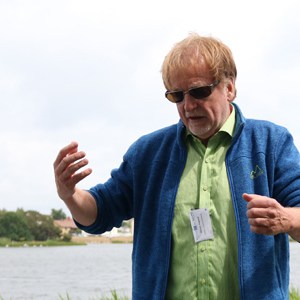 William Hogland,
William Hogland,
researcher in Sweden
One of the Baltic Smart Water Hub’s developers and users is William Hogland, professor of Environmental Engineering and Recovery at Linnaeus University, Sweden: “We use the Hub cases to inspire our further research, e.g. on the circular economy and sustainable methods for the recovery of metals, nutrients and phosphorous.”
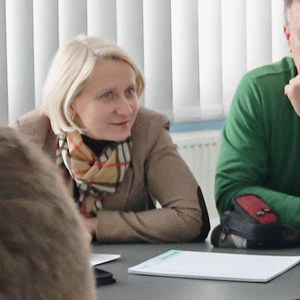 Sniazhana Dubianok,
Sniazhana Dubianok,
lecturer in Belarus
“For Belarus, the exchange of transnational experiences in the water sector and in particular the Baltic Smart Water Hub is very important,” emphasises the Deputy Director of the Central Research Institute for Complex Use of Water Resources in Belarus, Sniazhana Dubianok. “Together with the Belarussian National Technical University and the Vitebsk Water Utility, we selected the most relevant and interesting cases from the online Hub and translated them to Russian to be further used in education and capacity building in our work.”
Because experts in the Baltic Sea region work together and share their knowledge, they can have a greater impact with less effort. More waste water treatment plants can become profitable and more municipalities can generate surpluses. Eventually, the economy around waste water treatment plants becomes circular and the environment is less burdened by nutrient and CO2 emissions.
Global interest in Baltic Sea region solutions
More and more solutions are being submitted to the Hub and users are proposing additional experts to contribute. Recently, experts from Vietnam and Georgia contacted the project managers because they are interested in the solutions published in the Hub. In addition, American municipalities from the Great Lakes inquired about the waste water treatment approaches in Europe from the IWAMA project. The positive effects of the Baltic Smart Water Hub can be expected to unfold further now that the project has ended. “In a new project, the ‘Platform on integrated water management’ (BSR Water), we are now working to expand the Hub to storm water, fresh water and sea water management and follow up on its actual effects,” announces Björn.
Story prepared by Stefanie Maack (Interreg Baltic Sea Region) with support of Agnieszka Ilola (Union of the Baltic Cities).
